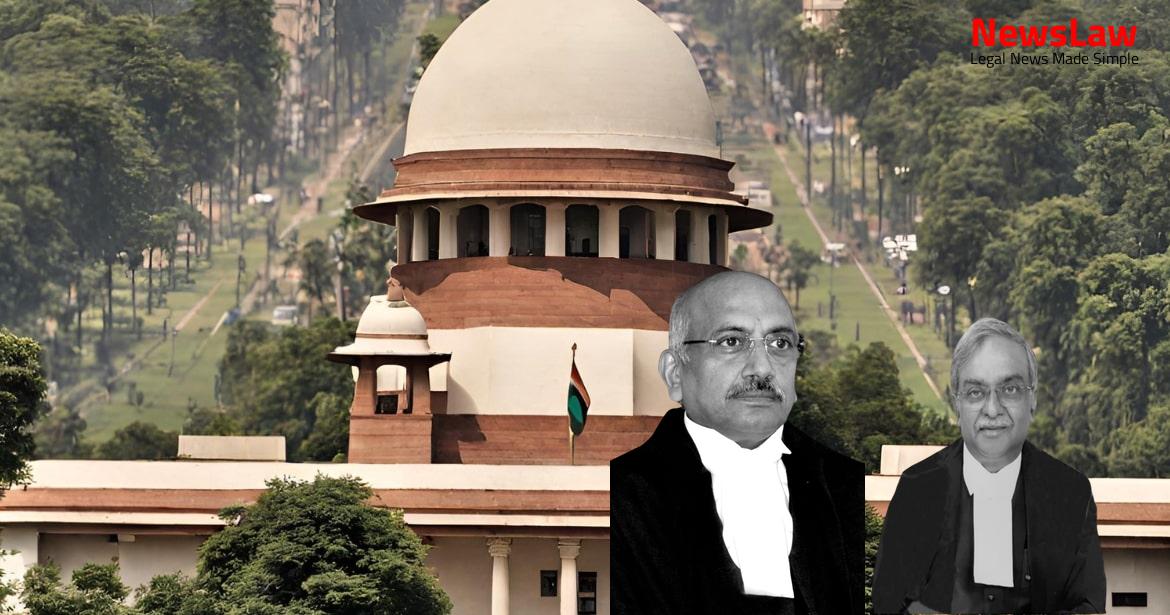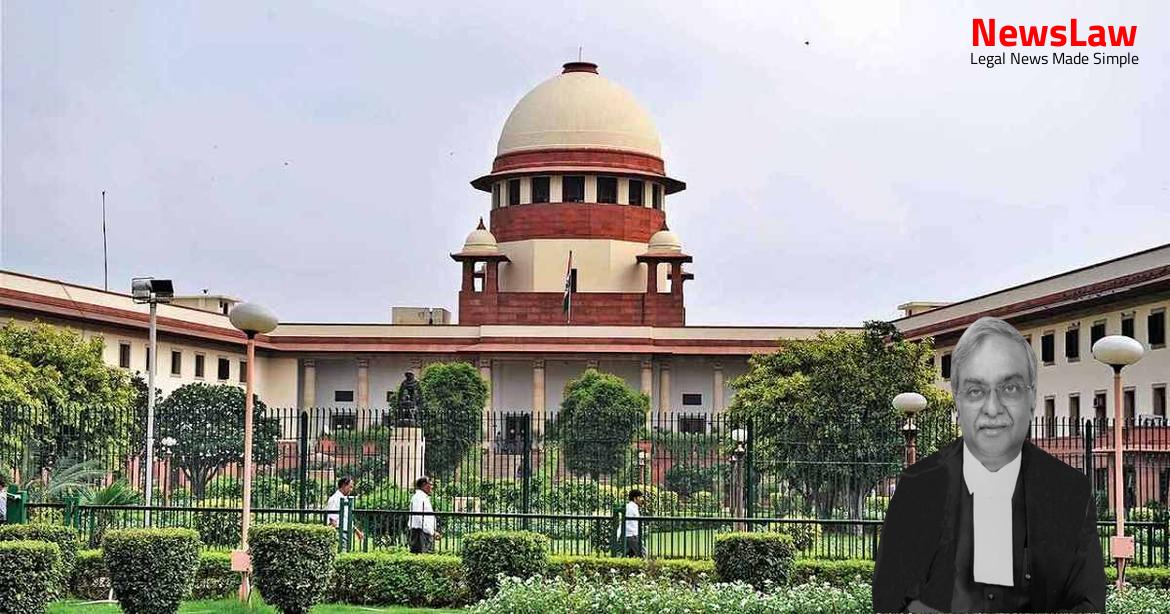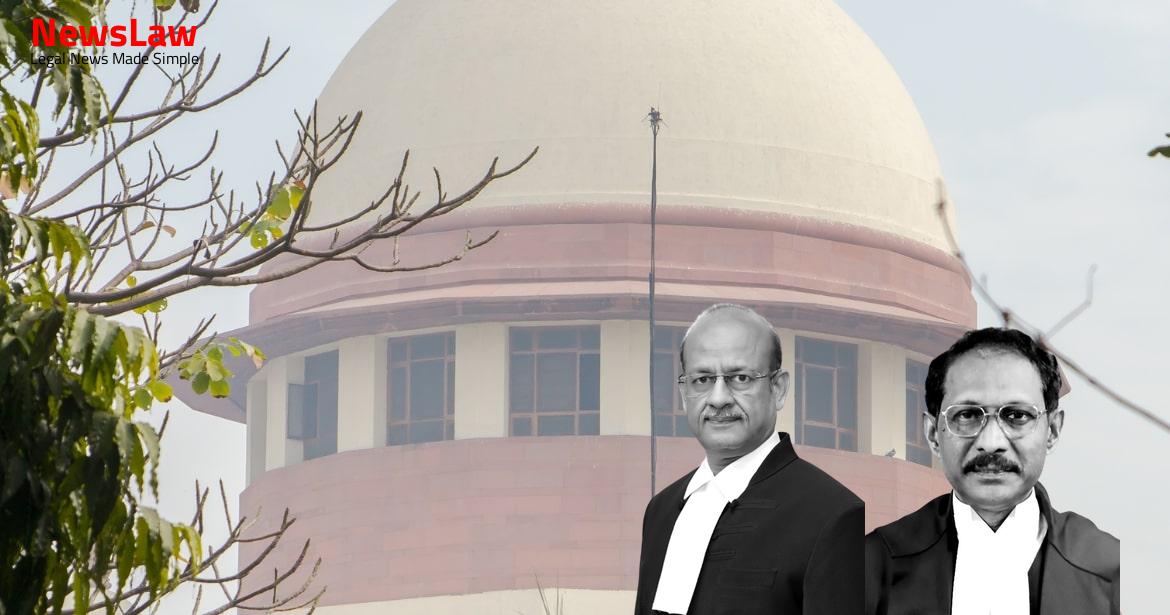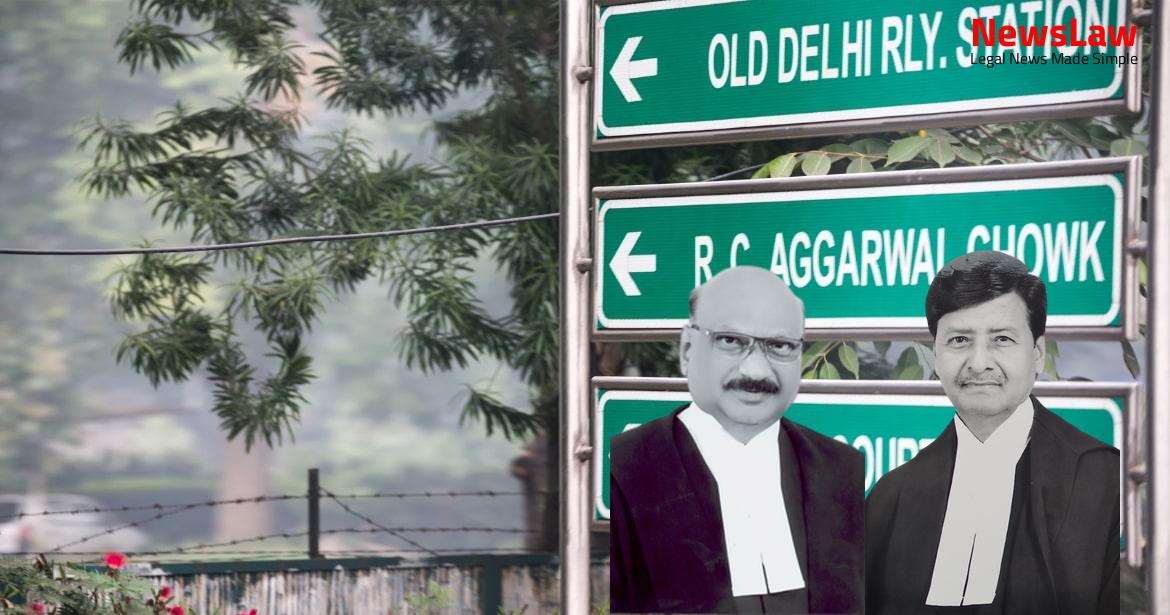Discover the critical examination of the court’s legal analysis pertaining to preliminary assessments under the Juvenile Justice Act, 2015. The focus is on the meticulous evaluation of a child’s mental and physical capabilities in the context of alleged offenses, emphasizing the need for expert involvement for a comprehensive assessment. Follow along as we unravel the complexities of interpreting statutory provisions and the application of legal principles in handling cases involving children in conflict with the law.
Facts
- Proceedings arising out of preliminary assessment under section 15 of the Juvenile Justice (Care and Protection of Children) Act, 2015 were examined by the Court.
- The Social Investigation Report was prepared and submitted on 27.11.2017.
- The Board made a preliminary assessment as mandated by section 15 of the Act, 2015, due to the fulfilment of conditions by the respondent.
- Two special leave petitions were filed assailing the High Court’s order.
- The respondent was found to be 16 years and 5 months old at the time of the incident.
- Efforts for early hearing or disposal of the petitions were lacking for over 3 years.
- The impugned orders dated 20.12.2017 and 21.05.2018 were set aside, remanding the case back to the Board for fresh consideration.
- A status quo order was issued on 19.11.2018 in the first special leave petition.
- The respondent appealed to the Children’s Court against the order dated 20.12.2017.
- The State transferred the investigation to the Central Bureau of Investigation.
- The Board directed for placing the child in a safety home within six weeks.
- The Children’s Court upheld the decision of the Board and dismissed the appeal.
- The learned single Judge allowed the Revision, setting aside the orders passed by the Board and the Children’s Court, remanding the matter to the Board for fresh consideration.
- The High Court’s order of remand is being challenged in the present appeals by the CBI and the complainant.
- The High Court directed the Board to decide the matter afresh within six weeks.
- The respondent filed a Criminal Revision under section 102 of the Act, 2015, before the High Court, leading to the current appeals.
- The appeals question the correctness of the judgment and order dated 11.10.2018 passed by the learned single Judge of Punjab and Haryana High Court in Criminal Revision No.2366 of 2018.
Also Read: Balancing Private Grievances and Public Interests
Arguments
- Shri Sidharth Luthra appeared as the learned senior counsel for the respondent.
- The court has heard the arguments presented by Shri Sidharth Luthra on behalf of the respondent.
- The material on record has been examined by the court in relation to the respondent’s case.
- The petitioner’s counsel argues that the IQ test conducted on the petitioner was when he was over 16 years and 9 months old, suggesting a discrepancy in the assessment of his age.
- The Act, 2015 requires confidentiality of all reports related to the child considered by the Board.
- The petitioner alleges doubts about the credentials of the experts involved in the case.
- The counsel emphasizes the need for the petitioner to have access to the reports and the right to cross-examine the experts for verification.
- The counsel points out the necessity for a positive interpretation of Section 3 of the Act to create a comfortable environment for the child.
- The confidentiality of reports is highlighted as essential to protect the child’s interests.
- The inefficiency of the Central Bureau of Investigation in handling cases involving children is admitted.
- The counsel stresses the importance of following rules 10 and 10A of the Model Rules, especially regarding the role of experts in the assessment process.
- Reference is made to Section 99 of the Act, 2015 regarding the confidentiality of reports and records.
- The petitioner’s counsel argues that the Board’s denial of access to confidential reports violates the principles of equality and non-discrimination.
- The importance of giving the child a fair hearing and involving them and their parents or guardians in the process is reiterated.
- The counsel challenges the jurisdictional restrictions cited by the CBI, asserting the court’s power to intervene in cases of illegality or non-compliance with mandatory provisions.
Also Read: Quashing of Criminal Proceedings Based on Insufficient Allegations
Analysis
- The analysis focuses on the effect of an order of preliminary assessment as per the Act, 2015.
- The assessment considers the mental and physical capacity of the child to commit the offence, their ability to understand the consequences of the offence, and the circumstances under which the alleged offence was committed.
- It mentions the need for a meticulous psychological evaluation and the importance of distinguishing attributes between a child and an adult.
- The analysis highlights the requirements for preliminary assessment under the Act, which includes taking assistance from psychologists, psycho-social workers, or other experts experienced in working with children in difficult circumstances.
- It stresses the need for the board to document various observations during the assessment, including life skills deficits, family history, peer relationships, trauma experiences, mental health disorders, and developmental disabilities of the child.
- The analysis also discusses the potential consequences of the offence on the victim, the family, and the child, calling for proactive and supportive responses from the board to address these issues.
- The Board is required to conduct an inquiry regarding a child in conflict with law under section 14 of the Act, 2015.
- The inquiry needs to be completed within a specific timeline, and extensions can be granted for valid reasons.
- In cases of heinous offences, further assessments may be needed, and the Chief Judicial Magistrate or Chief Metropolitan Magistrate can grant extensions for completion of the inquiry.
- The Board must ensure fair and speedy inquiry, and various principles like presumption of innocence and participation of the child must be followed.
- The Children’s Court plays a crucial role in determining the trial process for children in conflict with law.
- Provisions for protection and rehabilitation of the child are outlined, including individual care plans and follow-up reports after the trial.
- The use of the word “may” in a statutory provision does not by itself indicate whether the provision is directory or mandatory.
- Factors to consider in interpreting the legal import of the word “may” include the object and scheme of the Act, context, purpose, advantages sought to be achieved, etc.
- The word “may” is generally permissive and confers discretion, especially when used alongside the word “shall” which is imperative.
- The intent of the legislature and pertinent circumstances should be considered to determine whether words like “may”, “shall”, or “must” are used in a directory or mandatory sense.
- Merely using the words “may” or “shall” is not conclusive in determining the nature of the provision.
- The view that the intent of the legislature and circumstances must be considered in interpreting the words “may” or “shall” is supported by legal precedents.
- Various judgments including Bachahan Devi v. Nagar Nigam, Gorakhpur and Dhampur Sugar Mills Ltd. v. State of U.P. have discussed the interpretation of the words “may” and “shall”.
- Appropriate and specific guidelines are recommended to be put in place for making preliminary assessments under section 15 of the Act, 2015.
- The Central Government, National Commission for Protection of Child Rights, and State Commission for Protection of Child Rights are suggested to consider issuing guidelines or directions to assist the Board in making preliminary assessments.
- The observations made in the order regarding the merits of the case are specified to be relevant only for deciding the appeals and not to influence the Board, Children’s Court, or High Court.
- The task of preliminary assessment under section 15 of the Act, 2015 is emphasized as delicate and requiring expertise, with implications for the trial of the case.
- No psychologist’s report was sought regarding the ability of the individuals involved to understand the consequences and circumstances of the alleged offence.
- Both appeals are dismissed based on the considerations presented.
Also Read: Reversal of Acquittal: High Court Convicts Accused in Murder Case
Decision
- Necessary exercise to be done within six weeks
- Opinion of psychologist from Government hospital to be obtained during preliminary assessment
- Matters to be decided objectively on merits in accordance with the law
- Petition allowed, impugned orders dated 20.12.2017 and 21.05.2018 set aside
Case Title: BARUN CHANDRA THAKUR Vs. MASTER BHOLU (2022 INSC 716)
Case Number: Crl.A. No.-000950-000950 / 2022



